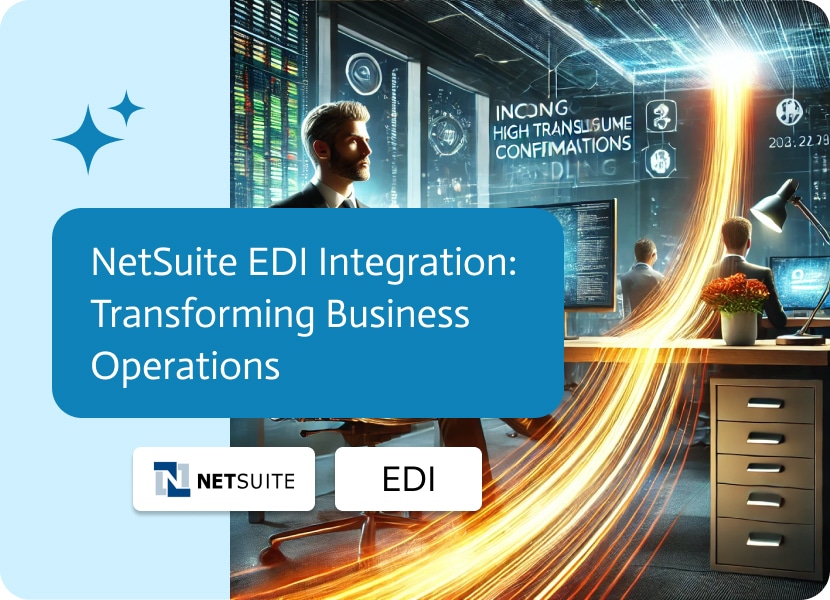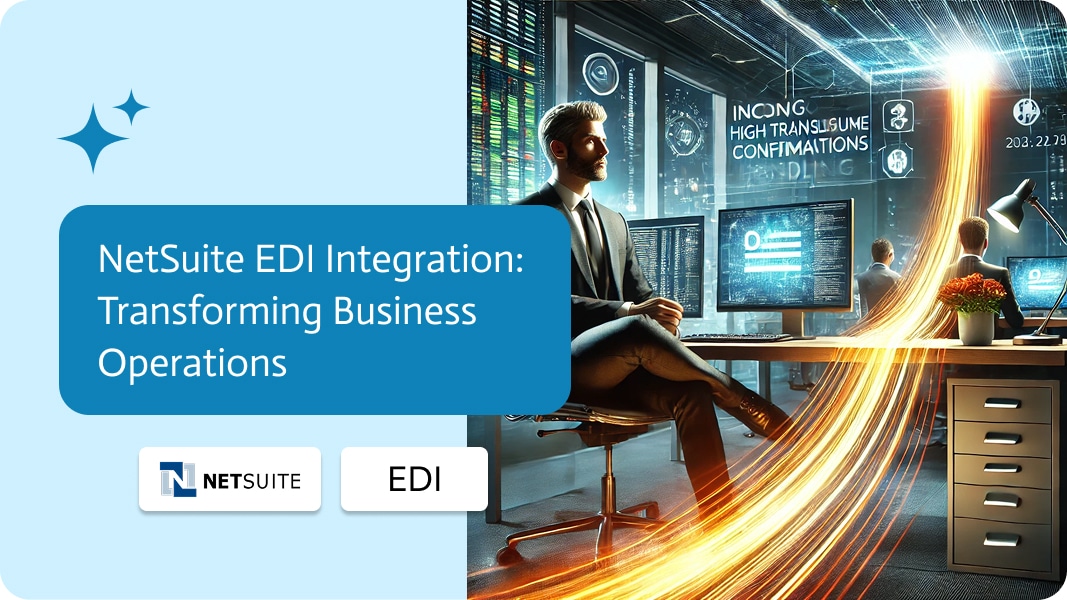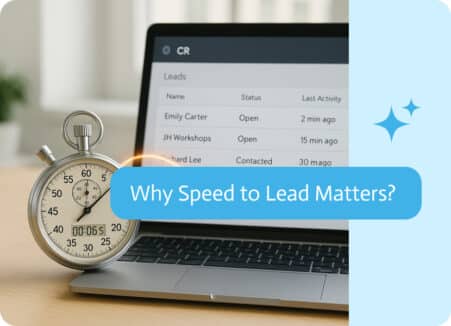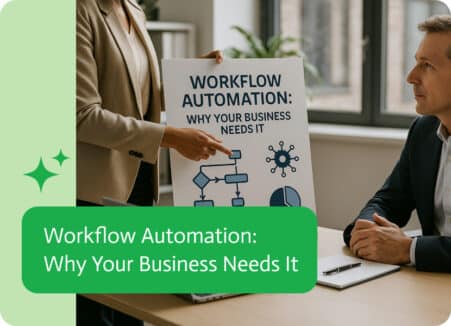

NetSuite EDI Integration: Transforming Business Operations
NetSuite EDI Integration is a powerful solution that connects Electronic Data Interchange (EDI) systems with NetSuite’s cloud-based ERP. It enhances data exchange processes by making them more efficient and accurate. With this integration, companies automate the transfer of key documents like purchase orders, invoices, and shipping notices. This speeds up processing, minimizes errors, and smooths out operational flows. By using EDI standards such as ANSI and EDIFACT, businesses can ensure compliance with trading partner requirements and improve supply chain efficiency. For any company aiming to automate processes and improve data accuracy, NetSuite EDI Integration is essential.
Understanding NetSuite EDI Integration
NetSuite is a widely used cloud-based ERP across industries like retail, manufacturing, and healthcare. Its modular design and integration capabilities make it especially valuable. Connecting Electronic Data Interchange (EDI) with NetSuite takes data exchange to the next level. By automating document workflows, this integration cuts down manual processes, lowers costs, and boosts data accuracy. These benefits are crucial for businesses that want to stay competitive and efficient.
While EDI has long served businesses, combining it with NetSuite’s ERP introduces new possibilities. This integration especially benefits businesses handling high-volume transactions, where speed and accuracy are essential. The main strengths of NetSuite EDI Integration are streamlined workflows, real-time data visibility, and stronger relationships with trading partners.
Unique Use Cases of NetSuite EDI Integration
The real value of NetSuite EDI Integration is best seen in industry-specific use cases. Here are three unique ways businesses use this integration to improve operations and gain an edge:
1. Retail Distribution: Optimizing Order Fulfillment and Inventory Management
In retail distribution, quick and accurate order fulfillment is essential to meet the high demand of customers. Retail distributors managing orders from multiple chains face the challenge of processing thousands of purchase orders daily. For this, seamless communication with both suppliers and customers is essential.
With NetSuite EDI Integration, retail distributors benefit by:
- Automatically processing purchase orders (POs) as they arrive, which reduces time spent on manual data entry.
- Synchronizing inventory data across warehouses and supply chain partners, ensuring stock levels are always up-to-date.
- Using Advanced Ship Notices (ASNs) to provide real-time updates on incoming shipments, allowing retailers to manage inventory effectively and prepare for peak sales periods.
Example: A regional retail distributor implemented NetSuite EDI Integration to streamline order processing. As a result, they saw a 30% decrease in processing time, with POs automatically created and updated across their warehouses. Improved inventory visibility helped them forecast more accurately and reduced stockouts during high-demand seasons.
2. Healthcare Supply Chain: Enhancing Compliance and Reducing Human Error
In the healthcare industry, regulations are complex, requiring high levels of data accuracy and compliance. A healthcare supplier working with hospitals and clinics must regularly exchange data on supplies, orders, and invoices to meet industry standards and specific partner needs.
NetSuite EDI Integration benefits healthcare suppliers in several ways:
- It provides secure data transfer methods to comply with healthcare regulations and protect patient data.
- Real-time inventory updates help hospitals and clinics track supplies and place timely orders, preventing stockouts of critical items.
- Automated invoicing and tracking ensure accurate payments and transparency across the supply chain.
Example: A medical device supplier integrated their EDI system with NetSuite, enabling real-time updates to hospitals on stock levels and delivery times. This integration sped up order processing and reduced invoicing errors, which helped maintain strong relationships with healthcare providers.
3. Manufacturing Sector: Streamlining Supplier Collaboration and Production Efficiency
Manufacturers rely on effective supplier collaboration to maintain timely delivery of raw materials and components. A manufacturing company managing multiple suppliers finds that EDI integration with NetSuite creates a clear, automated system. This system helps keep production schedules on track and minimizes costly delays.
NetSuite EDI Integration provides manufacturers with:
- Automated purchase order acknowledgments from suppliers, confirming order receipt and delivery times.
- Real-time tracking of materials in transit, allowing adjustments to production schedules if delays occur.
- Enhanced visibility into stock levels for raw materials and finished products, which optimizes inventory and prevents production delays.
Example: An electronics manufacturer used NetSuite EDI Integration to align order processing and inventory tracking with suppliers across different regions. As a result, they relied less on manual checks, which led to a 20% increase in on-time production cycles and reduced unexpected downtime.
Benefits of NetSuite EDI Integration
NetSuite EDI Integration offers valuable benefits for today’s businesses, addressing common issues from data accuracy to supply chain management. Key benefits include:
- Reduced Manual Work and Errors: Automating data entry for essential documents like purchase orders and invoices decreases human error and ensures high data accuracy.
- Enhanced Data Visibility and Real-time Insights: Businesses gain better visibility into their supply chain, inventory, and order statuses, enabling quick, informed decisions.
- Improved Relationships with Trading Partners: Faster, reliable communication strengthens relationships, minimizes delays, and builds trust for long-term partnerships.
- Cost Savings and Efficiency Gains: By automating processes, companies reduce administrative costs and allocate resources to growth initiatives and strategic tasks, enhancing overall efficiency.
Why Most Companies Choose an iPaaS Solution Over Native Integrations
Although some companies consider native integrations, most find that an iPaaS (Integration Platform as a Service) solution is a better choice for handling complex, high-volume EDI transactions. iPaaS platforms like Noca AI offer several advantages over native NetSuite integrations:
- Scalability: iPaaS solutions easily accommodate multiple systems and can handle increasing data volumes as businesses expand.
- Ease of Use: With a no-code approach, iPaaS platforms allow non-technical users to set up and manage integrations without advanced IT knowledge.
- Enhanced Customization and Flexibility: iPaaS offers flexible mapping and workflow options, enabling companies to tailor integrations to unique requirements.
- Centralized Monitoring: iPaaS solutions provide unified monitoring tools, which let companies track data flows and troubleshoot issues across all systems in real-time.
Noca AI, for instance, simplifies and automates integration processes, making it an ideal choice for businesses seeking to streamline NetSuite EDI Integration without investing excessive resources.
Conclusion
NetSuite EDI Integration is a valuable tool for businesses that manage high transaction volumes and need precise, efficient data exchanges with trading partners. By automating document workflows, companies across industries—such as retail, healthcare, and manufacturing—can boost operational efficiency, reduce errors, and meet industry standards.
Choosing an iPaaS solution, like Noca AI, for NetSuite EDI Integration provides a scalable, flexible approach that supports evolving business needs. Whether a company is streamlining order processing, improving inventory control, or cutting down on manual data entry, this integration offers significant benefits that help organizations thrive in a competitive digital world.
NetSuite EDI Integration Q&A
- What types of documents can be exchanged through NetSuite EDI Integration?
NetSuite EDI Integration supports standard documents like purchase orders and invoices, along with advanced documents like Advanced Ship Notices (ASNs) and Inventory Updates. - How does NetSuite EDI Integration ensure data security during transactions?
Data is protected through encryption protocols, and the integration complies with industry standards, making it suitable for sensitive sectors like healthcare and finance. - What are the common challenges businesses face during NetSuite EDI Integration?
Challenges include data migration, managing partner-specific EDI standards, and meeting regulatory requirements, especially in industries like manufacturing. - Can NetSuite EDI Integration be customized to fit unique business needs?
Yes, with an iPaaS platform, companies can customize mappings, workflows, and document formats to align with specific requirements, enhancing flexibility. - Is NetSuite EDI Integration suitable for small businesses?
Yes, with an iPaaS solution, small businesses can affordably scale EDI integration, gaining the automation and streamlined processes larger organizations enjoy.


